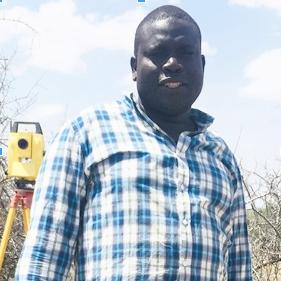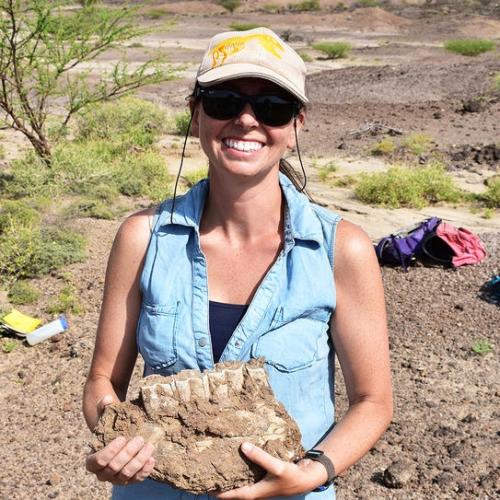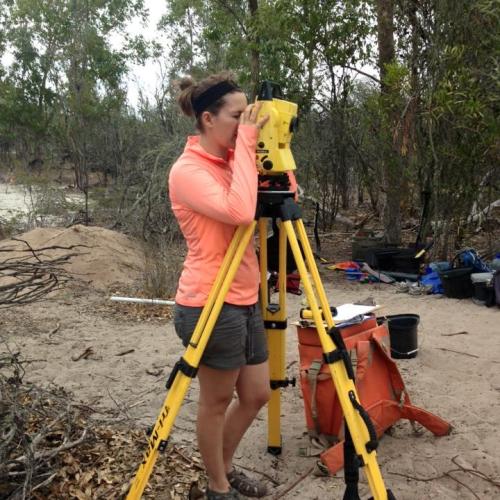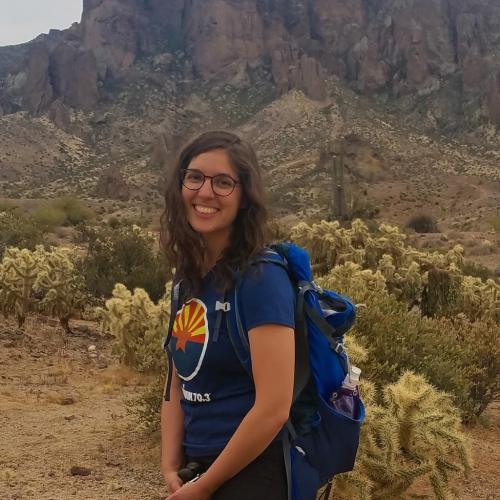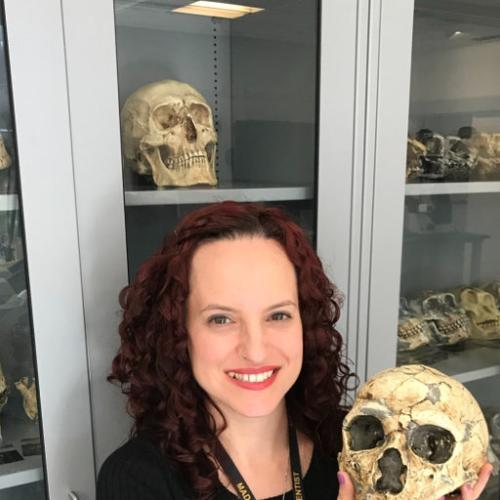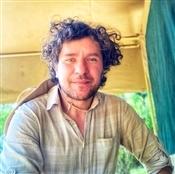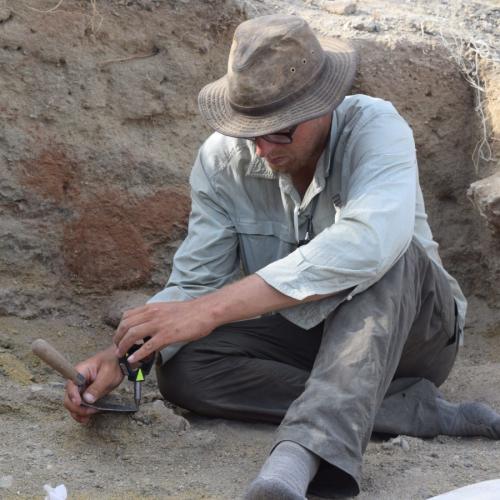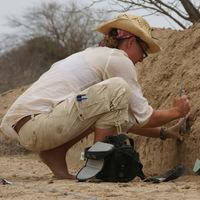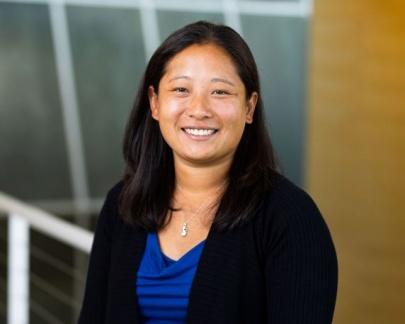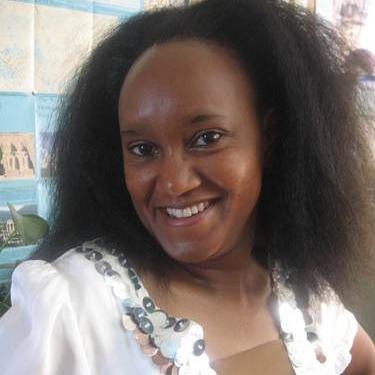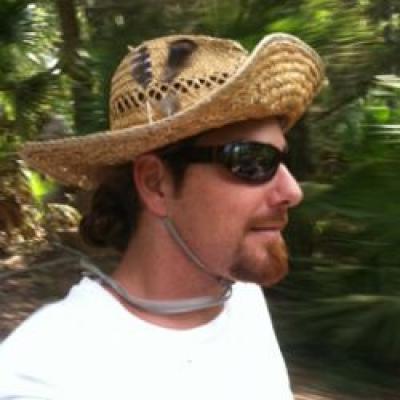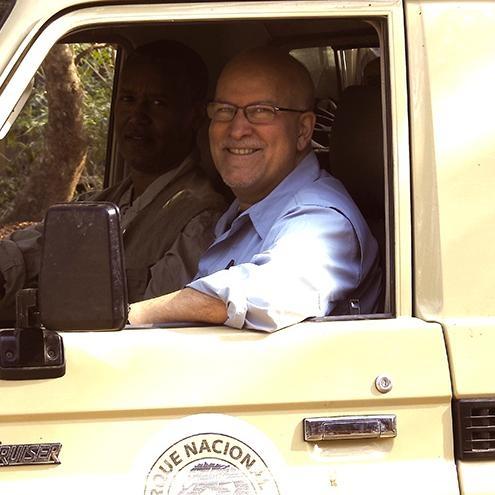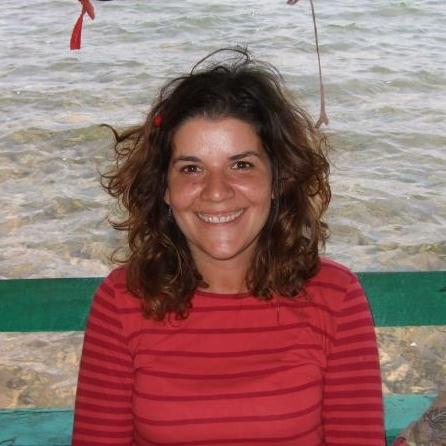Koobi Fora Faculty & Staff
Our faculty members on site include leading experts in hominin physiology, vertebrate paleontology, sedimentary geology, taphonomy, paleolithic archaeology, landscape archaeology, zooarchaeology, bioarchaeology and many more fields. Browse individual faculty pages to view recent publications.
Core Team
David R. Braun
Professor of Anthropology, The George Washington University
David R. Braun has conducted fieldwork in Kenya, Ethiopia, South Africa, Mozambique and Guinea. His research focuses on the origins of technology in hominins and the implications for the evolution of our genus. His research incorporates a variety of excavation techniques as well as geochemical approaches.
Emmanuel K. Ndiema
Senior Research Scientist and Head of Department of Earth and Natural Sciences, National Museums of Kenya
Emmanuel K Ndiema is an archaeologist who has worked in the Turkana Basin for more than 19 years. His fieldwork in East Turkana has been focused on investigating human cultural responses to climatic variability during the last 10,000 years. He is particularly interested in the subsistence and land use patterns among pastoralist communities
Ashley Hammond
Biological Anthropology Curator, American Museum of Natural History
Ashley Hammond is a paleoanthropologist and functional morphologist who has worked in the Turkana Basin for more than 10 years. Her fieldwork in East Turkana has been focused on reconstructing Pliocene and early Pleistocene hominin evolutionary history and paleoenvironments.
Asher Rosinger
Assistant Professor of Biobehavioral Health and Anthropology, Pennsylvania State University
Asher Rosinger is a human biologist who has worked with the Daasanach pastoralist population in Northern Kenya since 2017. His field research is designed to understand how humans meet their water needs, how this relates to perception, environmental resources and water insecurity, and the resulting health, hydration and disease consequences.
Herman Pontzer
Associate Professor of Evolutionary Anthropology, Duke University
Herman Pontzer is a human evolutionary biologist who works with hunter-gatherers, pastoralists and other small-scale societies to investigate connections between lifestyle, diet, physiology and health. His work with the Koobi Fora Field School centers on biological and ecological research with the Daasanach pastoralist community in the East Turkana region.
Matthew Douglass
STEM Education Development Specialist for the Master of Applied Science Program, University of Nebraska
Matthew Douglass’s research expertise concerns the study of long-term human-environmental interaction. He characterizes human movement patterns and land-use within semi-arid landscapes. He has recently initiated a study of changing pastoralist land use in the East Turkana Basin. He coordinates the Research Experience for Teachers (RET) component of the REU program.
Maryse Biernat
Graduate Student, School of Human Evolution and Social Change and the Institute of Human Origins at Arizona State University
Maryse Biernat has participated in field research at Koobi Fora for five years, focusing on reconstructing and understanding changing Plio-Pleistocene mammalian communities through time.
Andrew Barr
Assistant Professor of Anthropology, The George Washington University
Andrew Barr studies the paleoenvironmental context of human evolution. He has conducted paleoanthropological field research in the Turkana Basin and in the Afar Depression of Ethiopia since 2009.
Rahab Kinyanjui
Senior Research Scientist, Palynology and Paleobotany Section, Earth Sciences Department at the National Museums of Kenya
Rahab Kinyanjui is a palynologist and paleobotanist who has been engaged in various research projects in the Turkana Basin for more than 10 years. Her main focus is the application of phytolith studies in reconstructing vegetation during Plio-Pleistocene and Holocene environments of the east Turkana Basin.
Amanda McGrosky
Postdoctoral Associate in Evolutionary Anthropology, Duke University
Amanda McGrosky is broadly interested in the influence of the environment on human and non-human primate evolution and life history. Prior to joining Koobi Fora in 2017, she worked at paleontological and bioarchaeological sites in Europe and South America.
Frances Forrest
Assistant Professor of Biological Anthropology at Fairfield University; Resource Faculty in New York Consortium in Evolutionary Primatology
I am a zooarchaeologist studying fauna from early hominin archaeological sites in Africa. My research interests focus on reconstructing the ecology of Early Stone Age hominins in Africa by exploring the relationship among the hominins, the adjacent mammalian community, and the physical environment. I am particularly interested in the significance of meat in the diet of early members of the genus Homo and the degree to which environmental conditions may have influenced early human access to large herbivores.
Dan Palcu
Dr. Palcu is a geoscientist developing applications of paleomagnetism for paleoenvironmental reconstructions. He focuses on developing a paleomagnetic proxy for anoxia using rock-magnetism, geochemistry, geochronology, and stratigraphy. His longer-term goal is to develop a coefficient that expresses marine and oceanic connectivity, linked with a set of proxies, including rock magnetic ones that will advance our knowledge about past paleogeographic forcing on climate systems and will inform of future trends in the context of rising oceans.
Jonathan Reeves
Postdoctoral Researcher, Eberhard Karls Universität Tübingen
Jonathan Reeves’s work focuses on using quantitative methods to understand the links between Early Stone Age stone tool variability, hominid behavior, and ecology.
Sarah Hlubik
Postdoctoral Researcher, GW CASHP.
Sarah Hlubik works on the origins of pyrotechnology.
Sharon Kuo
Assistant Professor in the Department of Biomedical sciences , school of medicine at the University of Minnesota Duluth
Sharon is a functional morphologist anatomist, and paleoathropologist who studies Plio-Pleistocene hominins and Miocene hominoids. Her research focusses on the evolution of locomotion in primates and she has been working in the Turkana Basin since 2014.
Lydia Luncz
Technological Primates Research Group Leader, Max Planck Institute for Evolutionary Anthropology
My research lies at the interface of primatology and archaeology. I am using archaeological methods to compare the development of technologies in wild primate species, including bearded capuchin monkeys in Brazil, long-tailed macaques in Thailand and Western chimpanzees in Ivory Coast, as well as early hominin artefacts in the Turkana Basin, Kenya. By studying non-human primates and ancestral humans, I seek to answer key questions about our cultural evolution. My work includes natural observations of primates in the wild, field experiments and excavations at sites of primates and early hominins. This comparative approach builds a novel framework to further investigate the evolution of technology in humans, our ancestors and non-human primates alike. Primate artefacts can be useful as a model for the behaviours of early hominin. The material record of these behaviours remain largely invisible without comparative analogues.
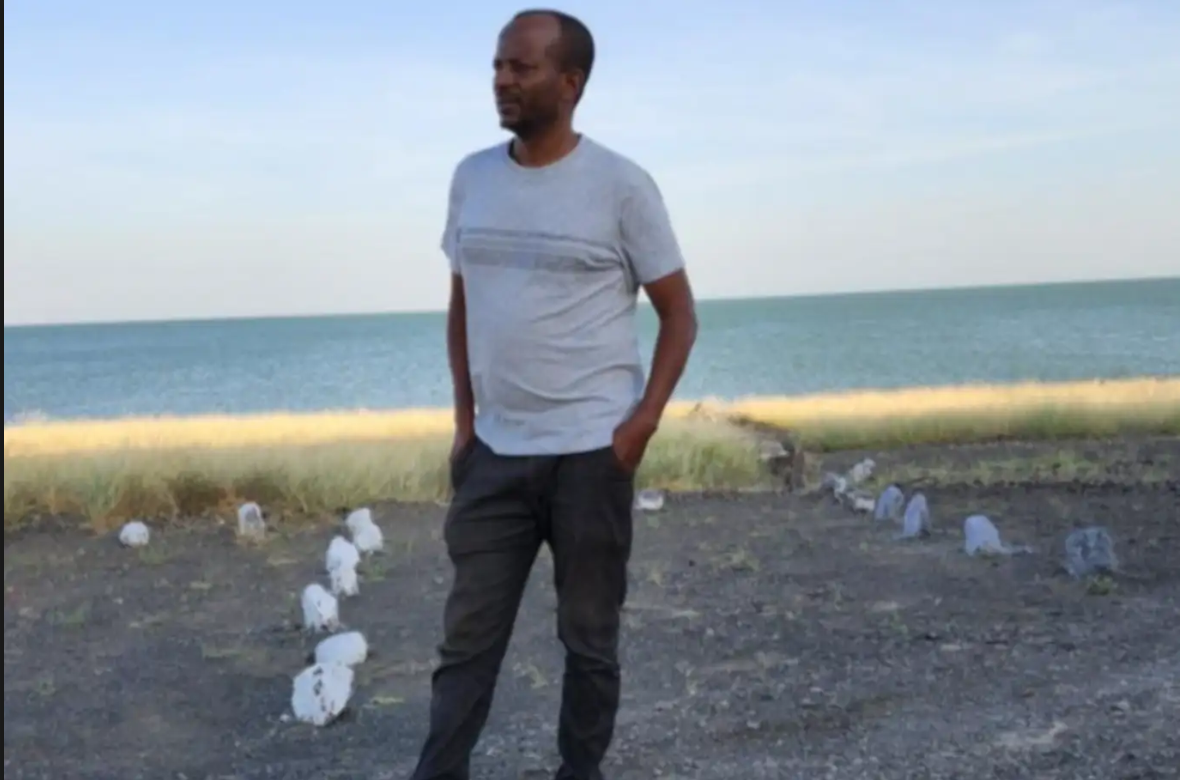
Kedir Teji Roba
Research Scholar: Water, Nutrition and Health Laboratory, Penn State University
My work focuses on the Human Biology Project at KFFS, which investigates how climate change affects food and water insecurity and overall population health, as well as how climate variability, lifestyle factors, and water salinity are associated with kidney damage in northern Kenya.
Additional Staff by Speciality Area
Purity W. Kiura
Co-Director
Anna K. Behrensmeyer
Paleoecology Taphonomy
Stephen Merritt
Zooarchaeology
Russel Cutts
Archeology, Origins of Pyrotechnology
René Bobe
Paleoenvironmental Analysis
Jack Harris
Paleolithic Archaeology, Paleoanthropology
David B. Patterson
Paleoecology, Paleoenvironments
Susana Carvalho
Non-human primate archaeology
Additional Collaborators
The Main Partners of the Koobi Fora Field School are the George Washington University and the National Museums of Kenya. However, our faculty come from a broad variety of backgrounds and our research involves many different collaborators.
- University of Witwatersrand (Professor Marion Bamford)
- University of Cape Town Department of Archaeology
- Max Planck Institute for Evolutionary Anthropology (Human Evolution Department)
- Rutgers University Center for Human Evolutionary Studies
- Coastal Carolina University Anthropology and Geography
- Smithsonian Institution Paleobiology Program
- University of Alabama, Birmingham, Anthropology Department
- University of North Georgia Biology Department
- University of Nebraska, Lincoln, School of Applied Science
- University of Georgia Anthropology Department
- University of Pennsylvania College of Health and Human Development
- Duke University Evolutionary Anthropology
- Turkana Basin Institute Program



